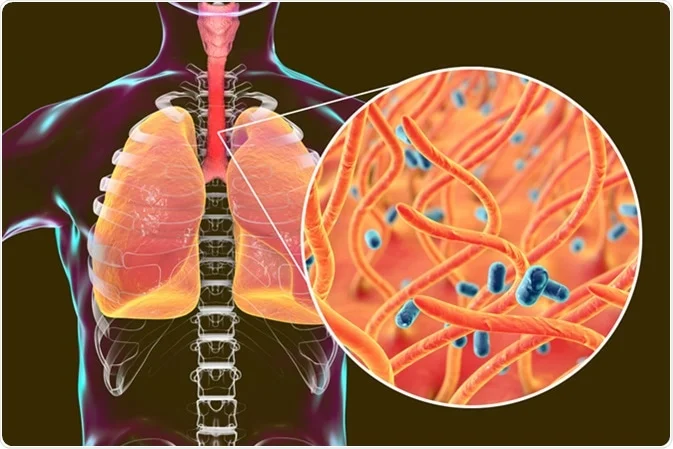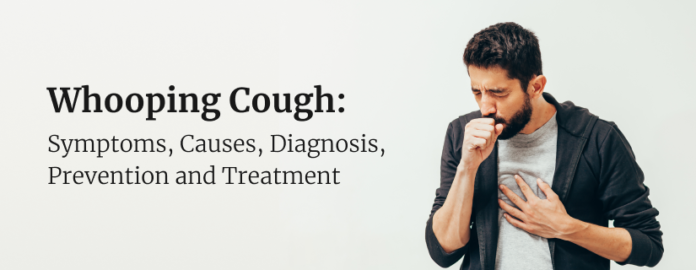Whooping cough, also called pertussis, is a highly contagious infection that affects the lungs. It leads to a strong, “whooping” sound when coughing. People with whooping cough can have long, repeated fits of coughing that may last for weeks or even months. This illness can be very serious and even life-threatening, especially for babies. Getting the pertussis vaccine is an effective way to prevent it.
What is whooping cough?

ALSO READ: What is HSV-2 (Herpes) and How Does It Affect Your Health?
Whooping cough, or pertussis, is a highly contagious infection that affects the upper respiratory system. It often causes long and frequent coughing fits, which can last for weeks or months after the first signs of illness.
In babies, instead of the usual coughing fits, they may have trouble breathing, including pauses in breathing known as apnea. Whooping cough can be very dangerous for infants, and about one-third of babies under one year old who get it need hospital care.
The vaccine for whooping cough is a good way to prevent the infection.
What does whooping cough sound like?
Prolonged coughing pushes air out of your lungs. After a coughing fit, when you take a deep breath, a “whooping” sound may occur as you inhale. This sound is loud and high-pitched, which is how whooping cough got its name. However, some people with the infection might not make this noise at all.
Who does whooping cough affect?

ALSO READ: 6 Health Benefits of Mango Leaves
Whooping cough can affect anyone, but it’s most common in babies, children, and teens. Babies are at a higher risk because they can’t get the pertussis vaccine until they are at least 2 months old. They often catch it from their parents, caregivers, or other children.
Can adults get whooping cough?
Yes, whooping cough in adults is usually milder than in babies and children, especially if they have received the vaccine. For vaccinated adults, the infection may feel more like a common cold, and they might not have the characteristic “whoop” sound.
However, adults who haven’t been vaccinated can still get severe cases of whooping cough. They may experience long-lasting coughing fits that can keep them awake at night. Many people who have had these fits describe it as the worst cough they’ve ever experienced. This can disrupt daily life and lead to serious complications.
How common is pertussis?
Before the pertussis vaccine was developed, the U.S. saw hundreds of thousands of whooping cough cases each year.
Today, the number of cases has dropped significantly. According to the Centers for Disease Control and Prevention (CDC), around 1,600 cases of pertussis were reported in the U.S. in 2021.
However, outbreaks still happen every few years, leading to spikes in cases. Whooping cough remains a global issue, with the World Health Organization (WHO) reporting over 151,000 cases worldwide in 2018.
What are the symptoms of whooping cough?
Early symptoms of whooping cough can be similar to those of a common cold. These symptoms may last for one to two weeks and can include:
- Mild fever
- Occasional coughing
- Runny nose
- Breathing pauses in babies (apnea)
After the first week or two, whooping cough symptoms typically include:
- Long, repeated coughing fits (called paroxysms) that can last for up to 10 weeks or more
- A “whooping” sound when inhaling after coughing
- Vomiting
- Tiredness from constant coughing
While symptoms usually start to improve after four weeks, coughing fits can continue for several months.
What causes whooping cough?

Whooping cough is caused by a type of bacteria called Bordetella pertussis. The infection begins when these bacteria enter your respiratory system. They attach to the tiny hair-like structures (cilia) lining your airways. Once attached, they release toxins that harm your cilia and cause your airways to swell. This swelling leads to increased mucus production, which results in severe coughing.
Is whooping cough contagious?
Yes, when you cough or sneeze, you release tiny droplets that contain the bacteria into the air. People nearby can inhale these droplets and become infected. You can spread the infection even before you show symptoms and remain contagious for up to two weeks after your coughing begins.



